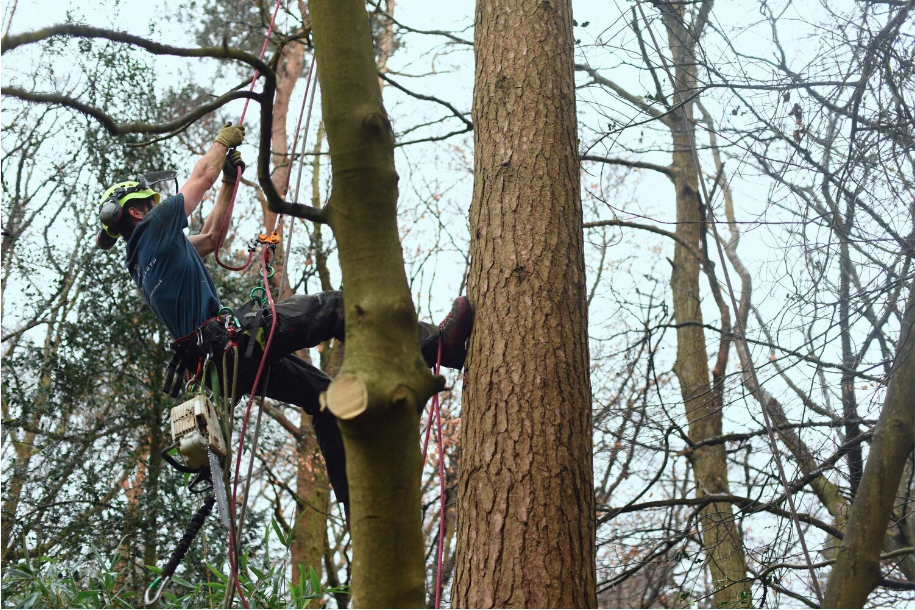How to Find a Job as a Tree Surgeon in the UK
Do you want to know how to find a job as a tree surgeon in the UK and how to ensure you maximise your future earning potential as an arborist? If so, you are sure to enjoy today’s article, which is focused on the best ways to find suitable employers when you are just starting out in the industry. As an accredited training provider and arboricultural service provider in the South East, we have plenty of useful tips and advice to share with you.
Finding a Job As a Tree Surgeon: Our Top Tips
In our experience, it is possible to increase your chances of landing a rewarding position as a tree surgeon in the UK by taking the following actions:
Enrolling in an Approved Training Course – Probably the single most effective action you can take as far as improving your chances of obtaining employment as a tree surgeon are concerned is to enrol in an accredited training course for tree surgeons.
Improving Your General Fitness Levels – Owing to the largely sedentary lifestyle that many people live today, fit and healthy job candidates are starting to become something of a rarity in some areas of the country. With this in mind, you can significantly boost your future job prospects as a tree surgeon by spending more time working out.
Adopting a More Flexible Attitude – In the arboricultural industry, as in other industries, it is those with the most flexible attitude to work who most often go on to assume senior management roles later in their careers.
Investing in Business Training – In addition to the vocational training we mentioned above, you may like to consider investing your time and money in general business training, thereby ensuring you will understand the financial, as well as the practical, side of tree surgery in the UK.
If you follow all of these suggestions, you might find it significantly easier to land the positions that appeal to you when looking for work as a newly qualified tree surgeon. For the best training in Kent or the surrounding area, check out our range of arboricultural courses before you leave.
What Kind of Tree Work Will You Be Doing?
A qualified tree surgeon doesn’t just remove trees or chop off dead branches. You might spend your days climbing into the canopy, cutting back overhanging limbs, or assessing tree health in public parks, gardens or along rail tracks.
In most cases, your day will begin with a job briefing, checking safety equipment, and inspecting the site. After that, you might be felling unsafe trees, carrying out crown reductions or helping produce tree survey reports.
It's all part of delivering the right tree surgery for each situation and offering specialist care where it's needed most.
What Skills and Knowledge Do Employers Look For?
Tree surgery is a physically demanding job that also calls for a wide range of technical and practical skills. Employers often look for people who are safety-conscious, confident at heights, and have good communication skills when working in a team.
Some of the most valued skills include:
Chainsaw maintenance and tool handling
Wearing safety clothing and following health and safety rules
Ability to remain calm under pressure during hazardous tasks
Basic tree identification and knowledge of when to remove branches or plant trees
Physical fitness to cope with the climbing, lifting and machine work involved
Even more than qualifications, having the right attitude and a keen interest in trees and outdoor activity can make all the difference.
Do Tree Surgeons Earn a Good Living?
As with most practical trades, the amount tree surgeons earn can vary depending on location, experience, and qualifications. If you’re just starting out, you might expect to earn a little under the average UK salary, especially if you’re training with a private firm or working as a forest labourer.
But with further training and hands-on experience, that figure can rise quickly. Many go on to become self-employed or start their own business. Some move into specialist areas like land management, tree survey reporting, or teaching others through vocational qualifications and training opportunities.
What Career Paths Can Tree Surgery Lead To?
Starting as a groundworker or trainee climber is just the beginning. A tree surgeon career can lead to a number of long-term paths across forestry and arboriculture. With experience, you might move into roles such as team supervisor, lead climber or consultant.
If you’re interested in forest management, tree health inspections, or helping public bodies with climate change response, there are opportunities in both the private and public sectors. Some choose to study further at education colleges and pursue a foundation degree or higher national diploma in relevant subjects for greater professional recognition.
Whether you want to focus on practical tree work or move into planning and consultancy, there’s no shortage of rewarding options in this green job field.

